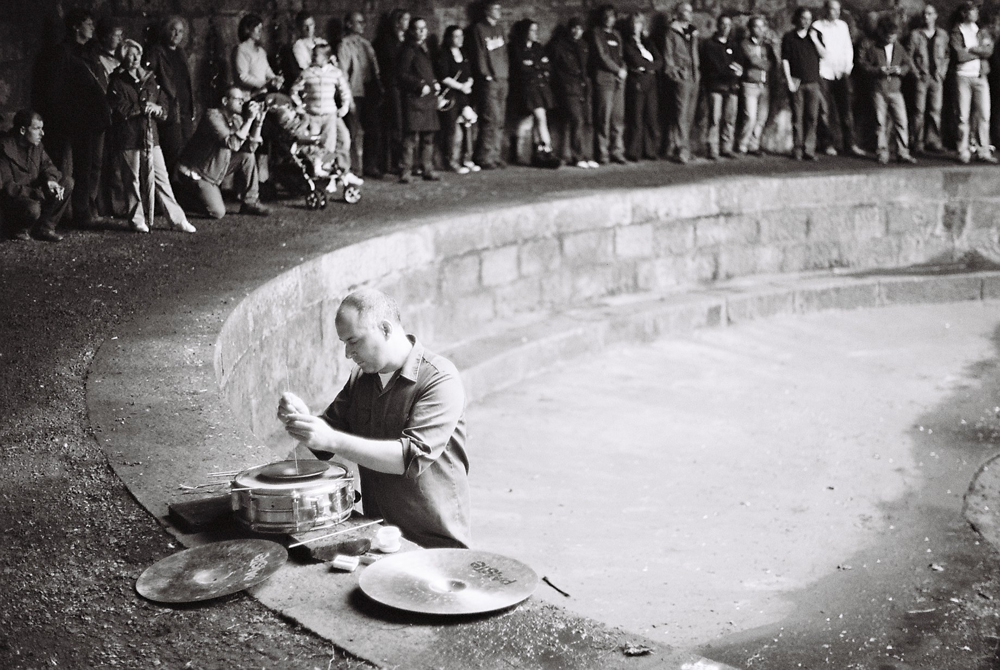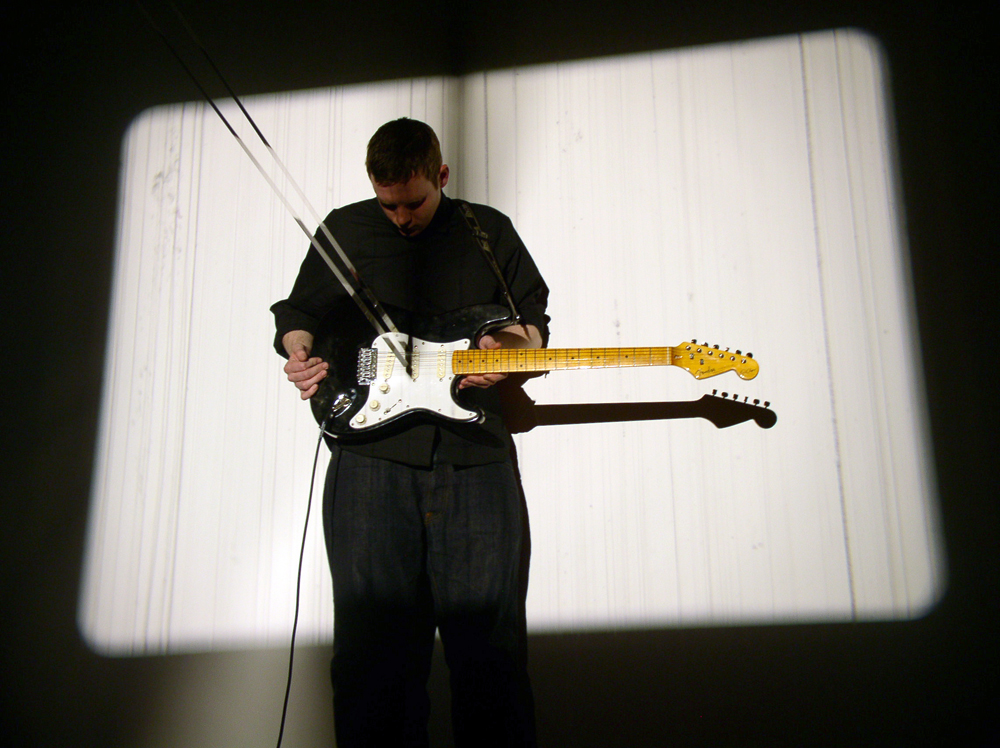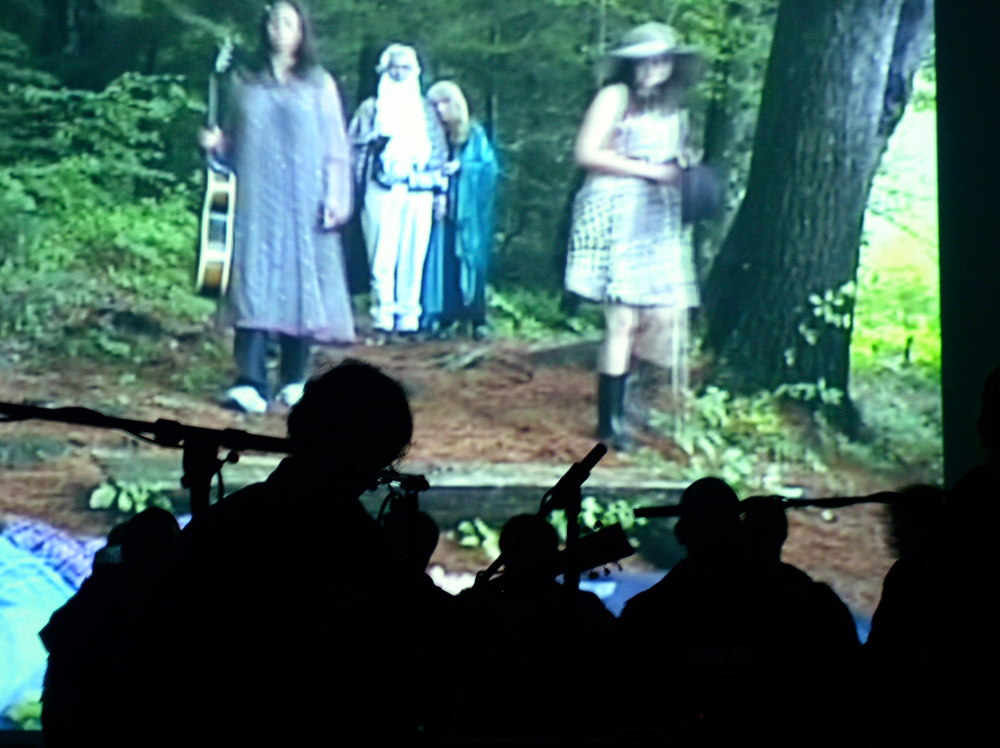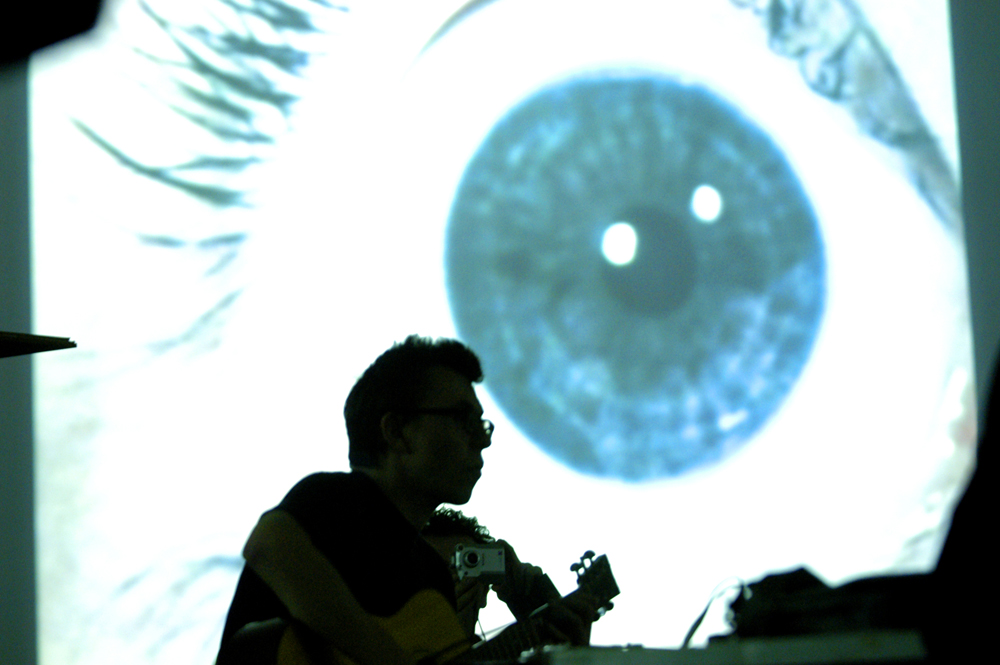
Chord of the Fifth Force
Barry Weisblat
A drone installation populated by flourescent strip lights working in complicity with analogue radios – “all the lights just do their thing”.
Arika have been creating events since 2001. The Archive is space to share the documentation of our work, over 600 events from the past 20 years. Browse the archive by event, artists and collections, explore using theme pairs, or use the index for a comprehensive overview.

A drone installation populated by flourescent strip lights working in complicity with analogue radios – “all the lights just do their thing”.

An improvised film about our worlds at the brink, on the edge, in front of a crisis. To stand on the side of life, by seeing the resistance to genocide in Palestine as a turning point to overcome.

Talk charting the radical history of experimental music in Japan + the lowdown into the careers of many of the artists appearing at MLFC.

One of the most arresting and unique improvisers in Japan, creating an original and powerful body of free music.

Conceived of as a dual publication, video cassette and booklet, to be presented as an installation. The content of the videotape is the artist watching television.

What is happening when systems of repression try to grasp communities’ ways of being, living or surviving, applying laws of sexuality, gender or race to cast them as criminal?

Disused railway turning circle at east end of Union Terrace Gardens, a historically public space at the centre of a regeneration land-grab for the private gain of a local petro-chemical magnate.

An original and beautifully simple performed installation forging a direct link between sound and image.

The Tower performance at KYTN throws into that mix the 70’s fluxus light shows and films of Jeff Perkins and other filmic interventions tuned to their unique frequency.

A historical narrative of the black and latino/a transgender, bisexual, lesbian, and gay House and Ballroom Scene in relation to its artistic practices.

The queer archiving of traumatic cultural memory from one of the leading voices working with queer archives.

A live installation of the ‘Film Ist’: projected on 4 huge screens and an improvised soundtrack from 4 figureheads of the Austrian experimental music scene.